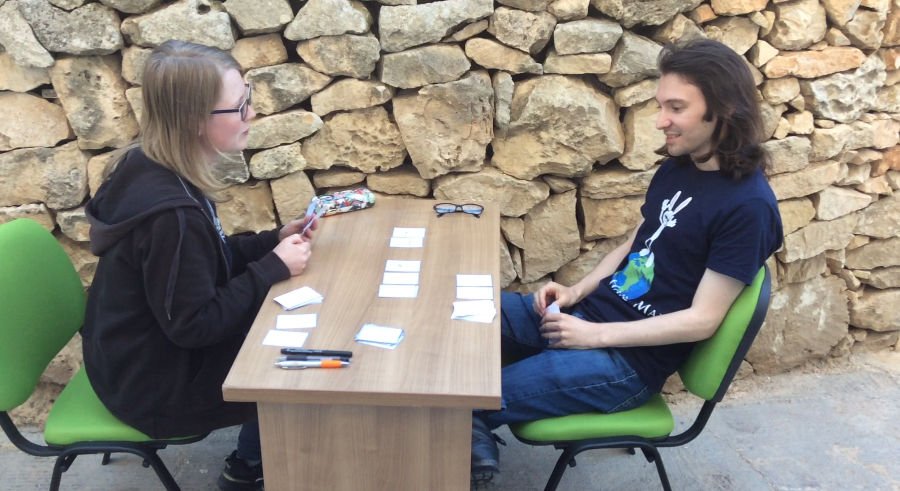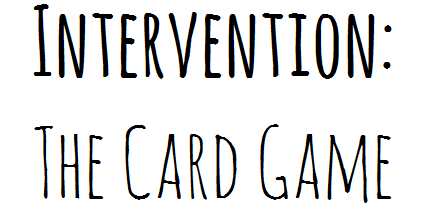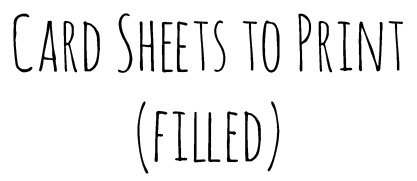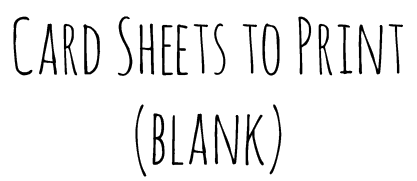Intervention is a two-player asymmetrical card game which touches upon the issue of depression and how others can help depressed people from falling deep into such a vicious cycle. Intervention recites the daily routine of a depressed person, and the efforts of a caregiver to alleviate some of the problems the depressed person is facing.
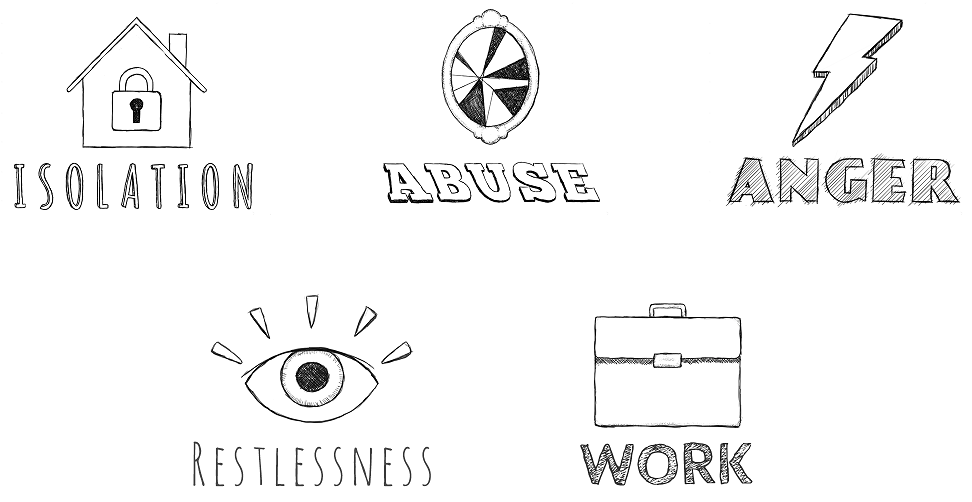
The core gameplay is simple: one player, playing the role of the depressed, tries to complete sets of three cards of the same type while the other player, playing the role of the caregiver, tries to stop her from doing so. The depressed player, who starts the game, adds problem cards of specific types (Work, Isolation, Anger, Abuse and Restlessness) to their daily routine, obeying certain rules on adjacencies with other cards already in the routine. Once three or more problem cards of the same type are in the routine, the depressed player can play a 'clinical' card of that type from her hand (if she has it) and end the game as she has gone beyond non-professional help. Meanwhile, the caregiver player can replace problem cards on the routine with solution cards, taking the problem cards in her hand (and thus needing to discard her hand more often). The caregiver can also play intervention cards during the depressed player's turn to stop more problems or clinical cards from being played, thus allowing her to apply a solution to existing problems without the depressed player being able to add more.
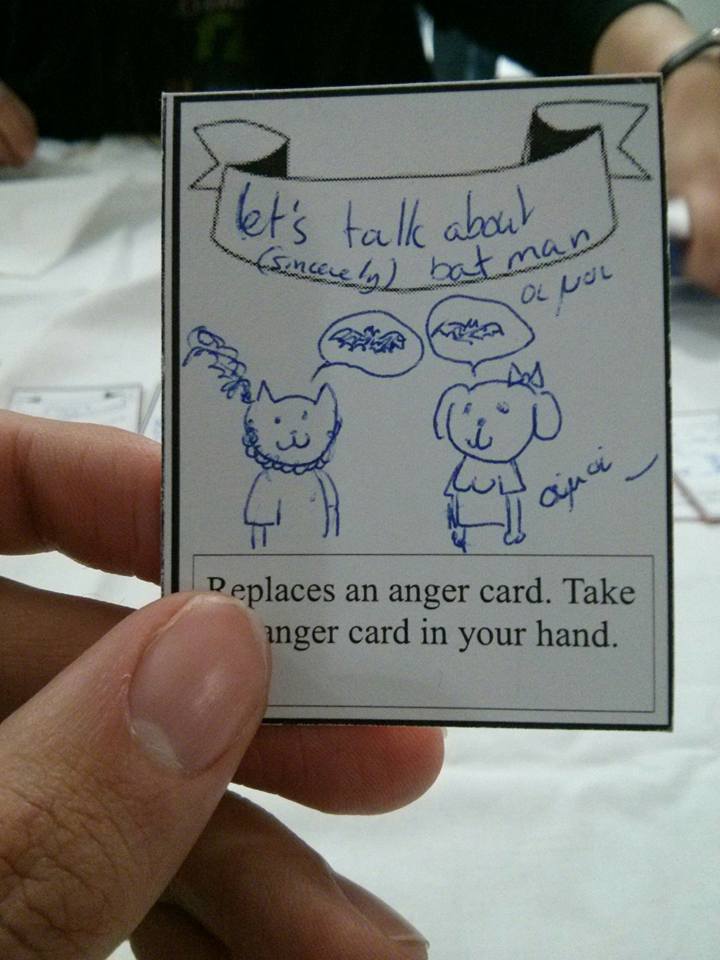
An important aspect of the game is storytelling, as both depressed and caregiver players must recite how cards they play are connected to the current routine and the current narrative which both players are forming. Moreover, the game motivates people to make their own cards in order to introduce and discuss problems that they are facing and solutions that they have to offer.
The gameplay does not require too much explanation. Intervention sessions rarely last more than 30 minutes (depending on the stories told by the players), and thus the game can be quickly and easily demonstrated.
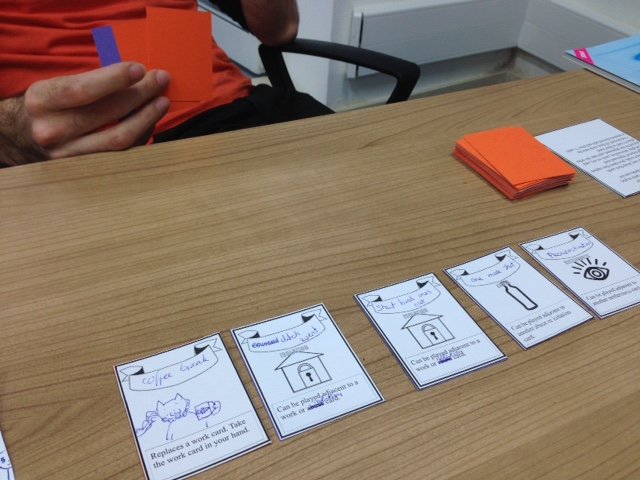
The current prototype showcased in this submission was created during the Global Game Jam 2016 and was tested during the jam and at local events in Malta since. It uses prototype material from the jam, and features card artwork made by Isabelle Kniestedt for the stories we were telling during the jam. There are plans for developing a card deck with appropriate problems, solutions and artwork for a commercial release. However, there will always be an option to print either blank or pre-filled decks for people who want a quick game. We suggest that the Caregiver deck is printed in a different colored paper than the Depressed deck for easier sorting and better gameplay (as the depressed player can see how many cards the caregiver can play).
I am Antonios Liapis and I created Intervention during the Global Game Jam 2016, for the purposes of telling stories around the topic of depression. I am a Lecturer at the Institute of Digital Games (University of Malta) where I teach game design & development and procedural content generation algorithms. I have been living in Denmark from 2008 to 2014, where I completed a Master in Game Technology and a PhD in Game Artificial Intelligence, and in Malta from 2014 onwards, where I worked for European-funded projects on games for conflict resolution as well as for prompting learners' creativity in classrooms. During my Master studies I have developed different types of digital games (both large and small, serious and entertaining) including The Witching Hour which has received several distinctions. While I am an avid board-gamer and tabletop role-player, my daily routine revolves around digital game technologies and my research interests lie in the intersection of human-computer interaction and artificial intelligence and creativity. My website, where you can find my professional CV, is here.

During the Global Game Jam, the game was tested with resident academics and students of the Institute of Digital games, and titles & artwork were added to the cards. Playtesters include Isabelle Kniestedt, Phil Lopes and Daniele Gravina, with artwork being volunteered by Isabelle Kniestedt. The game was demonstrated during the Global Game Jam closing event and during an experimental game exposition, and has been played by more than 16 people at this point.
Many people struggle with depression of some sort, which can lead to 'clinical' depression if problematic behaviors or stress factors are not caught and corrected early. This is the metaphor used for the Intervention game. Moreover, since no two people are affected the same way by depression and likewise treatment must be individual, the game is built around the idea of creating cards for the individual rather than using a one-size-fits all card deck. However, a sample deck will be provided anyway for quick games and to provide inspiration.
